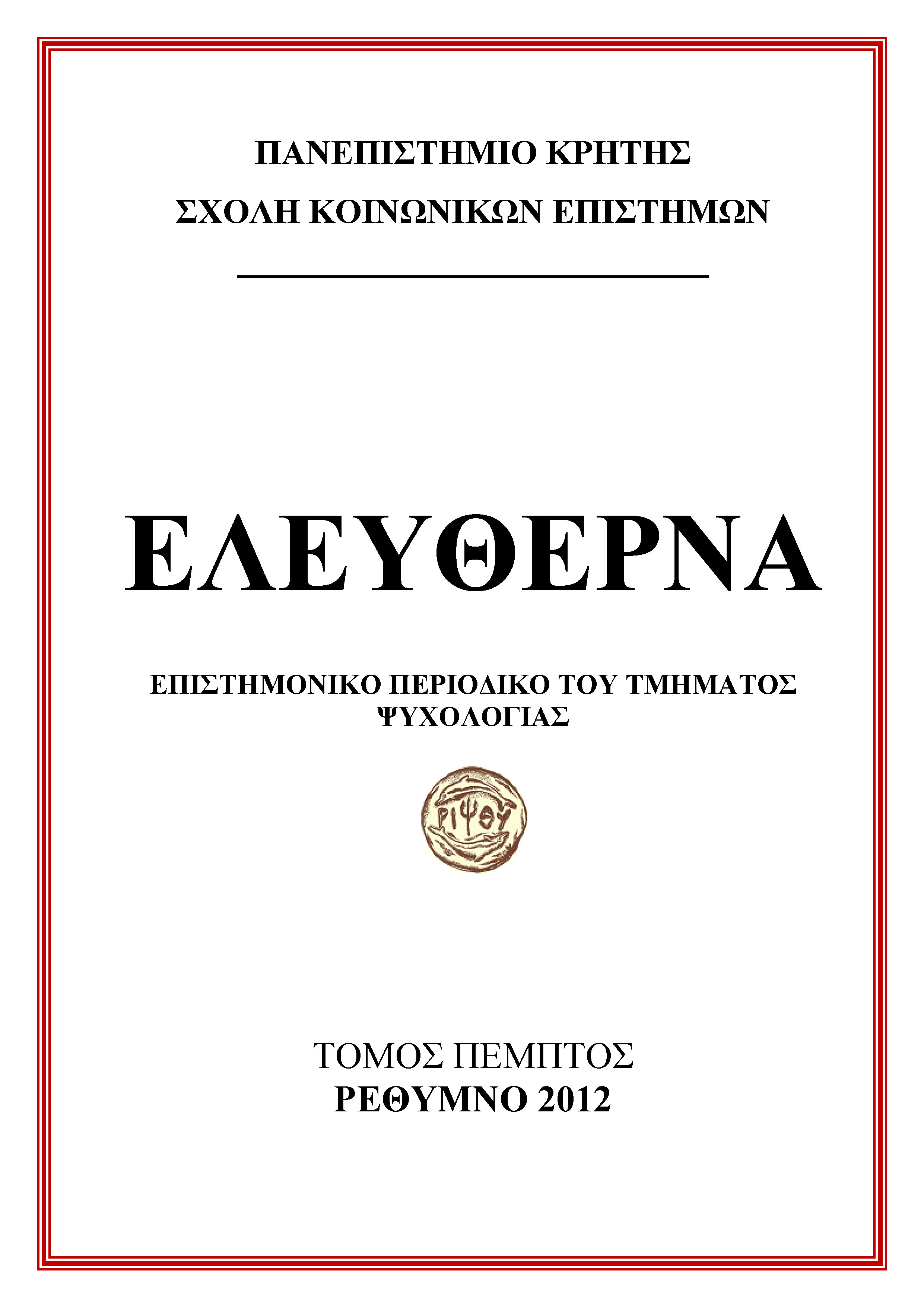The paradox of a knowledge of truth
DOI:
https://doi.org/10.26248/eleutherna.v5i0.115Keywords:
knowledge, truth, the real, unconscious, non-truth, horror of knowledge, horror of truthAbstract
Jacques-Alain Miller refers to Lacan’s proposition that the definition of the unconscious shifts from the unconscious as the truth of the subject, to the unconscious as knowledge. Once the unconscious is assimilated with the truth, the repressed truth returns as knowledge... and conceals it. The moment that truth lays down its weapons, it is recorded as knowledge. Truth is non-knowledge. This implies that truth cannot be learned... but this is spoken, it passes through the mouth of the speaker, without however belonging to him. Referring to the formulation of the subject supposed to know phenomena present in the unconscious, J.-A. Miller crosses over to the other side, where the unconscious is knowledge. A knowledge is essentially a table of truth. It comprises a specific utterance of signifiers. Lacan calls this the actual precondition of the sanctioning of the psychoanalyst in the context of the psychoanalytical act. Once we distinguish between the two forms of knowledge - the knowledge of I know and the knowledge that is there without me being able to say that I know it - it is in the gap between them that the subject supposed to know lies. The subject supposed to know is, in essence, a different way of writing knowledge in a position of truth. Defining the unconscious as knowledge removes passion from truth, even turning it towards mathematics. Lacan, in any case, never extolled the passion of truth. He extolled the passion of ignorance. Once Lacan had defined the unconscious through knowledge - which implies a way of confining truth in knowledge - he had to distinguish and conceive of the real in relation to knowledge and truth. In 1966, Lacan highlighted the horror of this truth, and seven years later he formulated the horror of knowledge. In the confrontation of non-knowledge and its relationship with the horror of truth, there is, according to Lacan, something we cannot avoid.
Downloads
Published
How to Cite
Issue
Section
License
This work is licensed under a Creative Commons License Attribution-NonCommercial-ShareAlike 4.0 International (CC BY-NC-SA 4.0).
Under this license EJPBS provides immediate open access to its content on the principle that making research freely available to the public supports a greater global exchange of knowledge.


